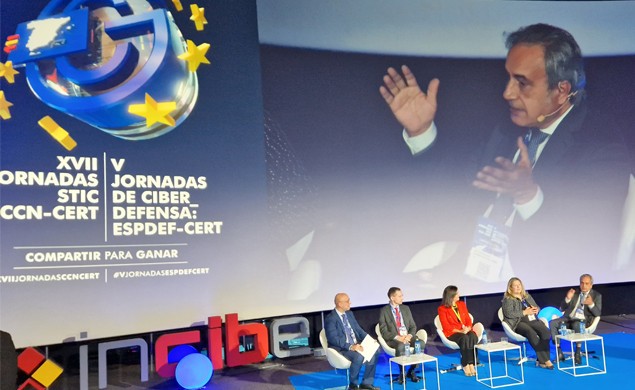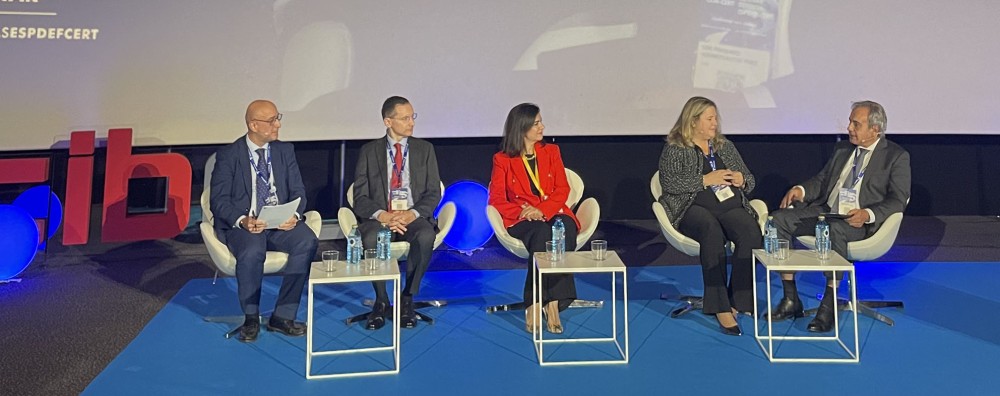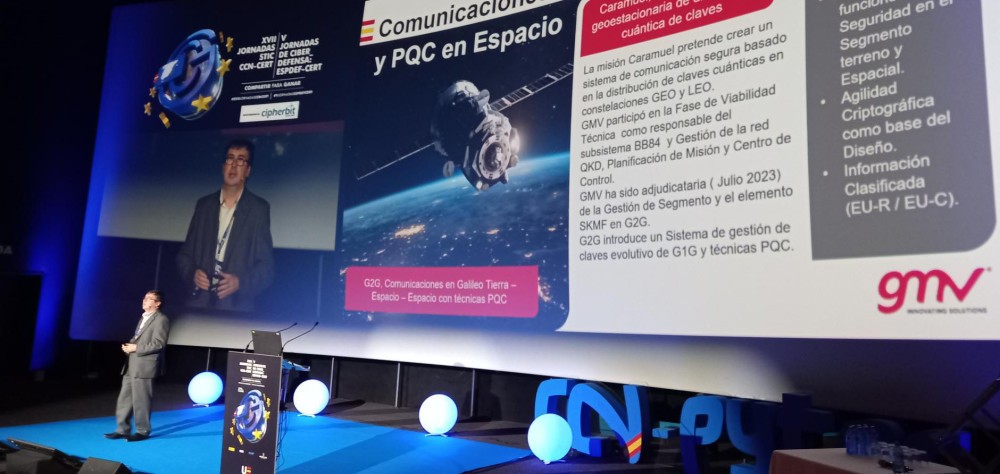Innovation in cybersecurity and cryptography, topics addressed by GMV at the 17th STIC CCN-CERT Conference

“Sharing to win” was the central theme of the 17th STIC CCN-CERT | 5th ESPDEF-CERT Cyberdefense Conference, a major cybersecurity event in Spain that focused on two core values of cybersecurity: collaboration and cooperation. From 28 to 30 November, all the main cybersecurity players in Spain gathered in Madrid. The event was also attended by the Minister of Defense, Margarita Robles; the Secretary of State and Director of the CNI and CCN, Esperanza Casteleiro; and the Secretary of State for Digitalization and Artificial Intelligence, Carme Artigas. Highlights included a tribute to the Director General of the National Security Department (DSN), Miguel Ángel Ballesteros, and the presentation of the Cybersecurity Career Achievement Award to long-time industry professional David Barroso.

As usual, GMV was there to share its projects and knowledge in the field of cybersecurity, which it helped to pioneer. In his contribution to the panel discussion on cybersecurity entrepreneurship and innovation, GMV’s Secure e-Solutions General Manager, Luis Fernando Álvarez-Gascón, recalled that the company “has been on the internet since 1994, when everything was still to be done in the field of cybersecurity.” Since then, the technology multinational, which is currently developing projects that apply quantum technologies to cybersecurity, has “paved the way with trailblazing visionaries and pioneers such as Julio Sánchez and Carlos Banmayer,” he added.
The use of quantum and post-quantum technologies to improve cybersecurity was the focus of the presentation given by Enrique Crespo, Head of Cybersecurity at GMV’s Galileo Satellite Key Management Facility, who outlined several specific use cases such as the CUCO and Caramuel projects. The first, a consortium initiated and led by GMV, is a pioneering initiative in quantum computing at the national and business level. It aims to advance scientific and technological knowledge of quantum computing algorithms and accelerate their implementation through public-private collaboration, research centers, and universities. CUCO is subsidized by the Centre for the Development of Industrial Technology (CDTI) and supported by the Spanish Ministry of Science and Innovation as part of the Recovery, Transformation and Resilience Plan. Meanwhile, Caramuel is the first geostationary mission for quantum key distribution. As an expert in the future Caramuel ground segment, GMV has a major role to play in studying its feasibility. The research is funded by the European Space Agency (ESA) through the Advanced Research in Telecommunications Systems – Space for Safety & Security (ARTES 4S) program, with the support of a group of Spanish companies and organizations known for their international presence, led by Hispasat.

As Crespo said in his closing remarks, in Spain “it’s up to us whether we’re going to be consumers or suppliers. There is industrial potential and talent in our country and we must therefore pool our capabilities in a coordinated way to ensure that Spain appears on the quantum technologies map.” Álvarez-Gascón also spoke about the capable and talented professionals in Spain, reiterating the need to value and attract them, especially women.